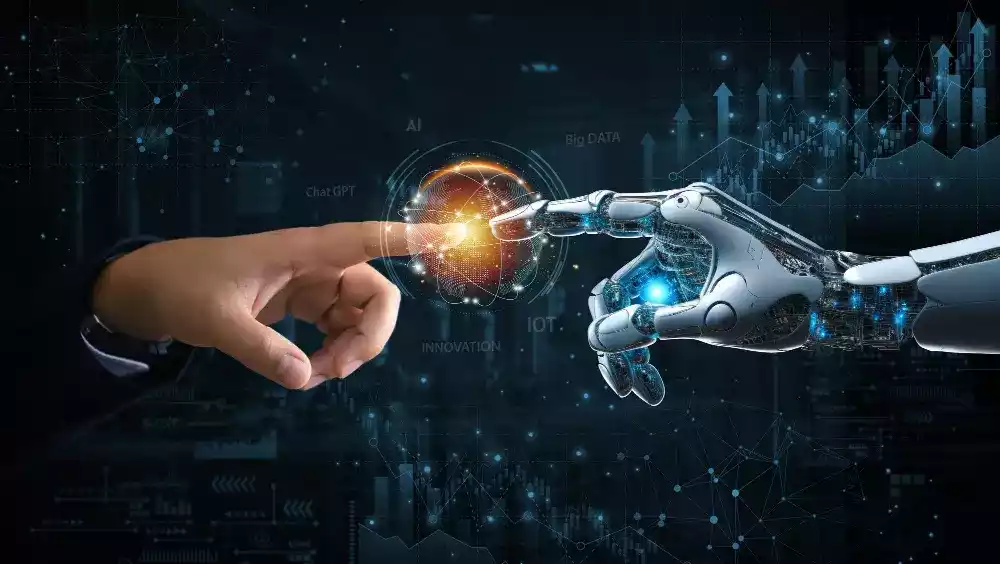Last updated on February 6th, 2025 at 04:09 pm
Technology has always been a driving force behind human progress, and the pace of innovation shows no signs of slowing down. From artificial intelligence to quantum computing, the future of technology is filled with exciting possibilities. Let’s explore some of the key trends and innovations that are shaping our world today.

Artificial Intelligence and Machine Learning
Artificial Intelligence (AI) and Machine Learning (ML) are at the forefront of technological advancements. AI-powered systems are being integrated into various industries, from healthcare to finance, to improve efficiency and accuracy. For instance, AI algorithms can analyze vast amounts of medical data to predict disease outbreaks or personalize treatment plans. In finance, AI is used for fraud detection and risk management, ensuring more secure transactions.
Quantum Computing
Quantum computing represents a paradigm shift in computational power. Unlike classical computers, which use bits to process information, quantum computers use qubits. This allows them to perform complex calculations at speeds unimaginable with traditional computers. Quantum computing has the potential to revolutionize fields such as cryptography, drug discovery, and materials science. Companies like IBM and Google are already investing heavily in this technology, aiming to solve problems that are currently beyond our reach.
Internet of Things (IoT)
The Internet of Things (IoT) is transforming the way we interact with the world around us. IoT devices, ranging from smart home appliances to industrial sensors, are connected to the internet and can communicate with each other. This interconnectivity enables smarter cities, more efficient manufacturing processes, and enhanced personal experiences. For example, a smart refrigerator can automatically order groceries when supplies are low, while industrial IoT sensors can predict equipment failures before they occur.
Augmented and Virtual Reality
Augmented Reality (AR) and Virtual Reality (VR) are blurring the lines between the physical and digital worlds. AR overlays digital information onto the real world, enhancing our perception and interaction with the environment. VR, on the other hand, immerses users in a completely digital environment. These technologies are being used in education, entertainment, and even healthcare. For instance, medical students can practice surgeries in a virtual environment before performing them on real patients.
Blockchain and Cryptocurrency
Blockchain technology is best known for its role in cryptocurrencies like Bitcoin, but its applications extend far beyond digital currencies. Blockchain provides a secure and transparent way to record transactions, making it ideal for supply chain management, voting systems, and digital identity verification. Cryptocurrencies, meanwhile, are gaining traction as a decentralized form of currency, offering an alternative to traditional banking systems.
5G and Beyond
The rollout of 5G networks is bringing faster internet speeds and lower latency, enabling new technologies and applications. 5G is crucial for the development of autonomous vehicles, smart cities, and remote healthcare services. As we look to the future, researchers are already exploring 6G technology, which promises even greater speeds and capabilities.
Cybersecurity
As our world becomes more digitally connected, cybersecurity is more important than ever. Protecting sensitive data from cyber threats requires advanced security measures, including encryption, biometric authentication, and AI-driven threat detection. Companies are investing in robust cybersecurity solutions to safeguard their digital assets and ensure the privacy of their customers.
QR Code Generator
In the realm of digital marketing and customer engagement, QR code generators have become indispensable tools. These generators allow businesses to create custom QR codes that can be scanned by customers to access promotions, product information, or even make payments. This technology bridges the gap between the physical and digital worlds, enhancing customer experiences and driving engagement.
Sustainable Technology
Sustainability is a growing concern in the tech industry. Companies are focusing on developing eco-friendly technologies that reduce carbon footprints and promote sustainable practices. This includes everything from renewable energy sources to biodegradable electronics. Sustainable technology is not just about protecting the environment; it’s also about creating a more resilient and equitable future for all.
Biotechnology
Biotechnology is at the intersection of biology and technology, focusing on the development of biological products and processes. Advances in biotechnology are leading to breakthroughs in gene editing, personalized medicine, and sustainable agriculture. For example, CRISPR technology allows scientists to edit genes with unprecedented precision, opening up new possibilities for treating genetic diseases.
Conclusion
The future of technology is filled with exciting possibilities and challenges. From AI and quantum computing to IoT and sustainable technology, these innovations are shaping our world in profound ways. As we continue to push the boundaries of what’s possible, it’s crucial to ensure that these technologies are developed and used responsibly, benefiting society as a whole. The journey ahead is filled with promise, and the potential for transformative change is immense.





